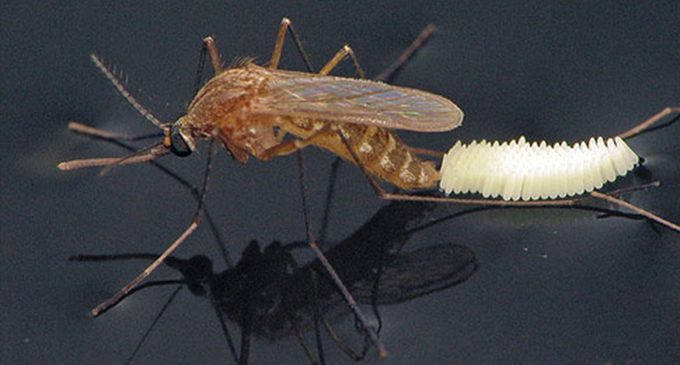Vector Control fights mosquitoes in Forsyth

After a massive increase in mosquitoes last year – including four that tested positive for West Nile virus in Winston-Salem – Forsyth County Vector Control is gearing up to fight mosquitoes this summer.
Last year was the biggest uptick in mosquitoes that Ryan Harrison has seen in his 20 years as the county’s vector control specialist. He went from the regular mosquito trapping and monitoring he did to focusing on using larvicide to try and control the population.
“Last year was probably the worst mosquito year I’ve ever had,” said Harrison. “We caught 21,000 mosquitoes.”
He also had mosquitoes test positive for West Nile virus for the first time since 2012. The virus usually has no symptoms or causes a flu-like illness, but in rare cases can cause deadly illnesses. Culex pipiens mosquitoes have the highest likelihood of transmitting the disease. Traps in some areas where catching 250 of them on a nightly basis.
So far, this year has been far better, with a normal mosquito population and traps netting one or two Culex pipiens a night. Harrison wasn’t sure if last year was an anomaly, part of a cycle or if his efforts to control the population worked. He said he’d have to wait and see if the amount of mosquitoes will be more normal this year.
“These things don’t follow rules, everything could change,” said Harrison.
Testing over the years in Forsyth County has only found a few cases of West Nile in mosquitoes thanks largely to the behavior of Culex pipiens. They tend to feed on birds, which can carry the virus, but rarely feed on humans. They also come out later at night, typically between 9:30 p.m. and 2:30 a.m. A different species, the Asian tiger mosquito, make up the overwhelming majority of complaints Harrison receives since it is active during the day.
Harrison said he sees high mosquito activity in older parts of the city including downtown. Mosquitoes need water to hatch their eggs, so anything that collects or holds water outside can be a breeding ground including tires, toys, corrugated drain pipes, bird baths, wheel barrels and rain barrels. He said he’s seen a ketchup cap with less than an ounce of water with numerous larva in it. He said anything with standing water in it outside should be emptied once a week from July to September.
“The mosquitoes, they’re not coming from ponds, they’re not coming from creeks,” said Harrison. “They’re coming from standing water in containers, nine times out of ten.”
He said using repellent with picaridin as an active ingredient and wearing long sleeve shirts and pants is the best way to prevent mosquito bites.
Harrison said he regularly monitors mosquito breeding grounds and treats them with larvicide, which only kills mosquito larva. He very rarely uses pesticide that targets adult mosquitoes, which would have to be applied carefully since it could harm the area’s bee population. He also investigates mosquito complaints on properties, determining the source of the problem and how to eliminate it.
Forsyth County Vector Control, which is a part of the county’s Public Health Department, can be contacted at (336) 703-3225.














